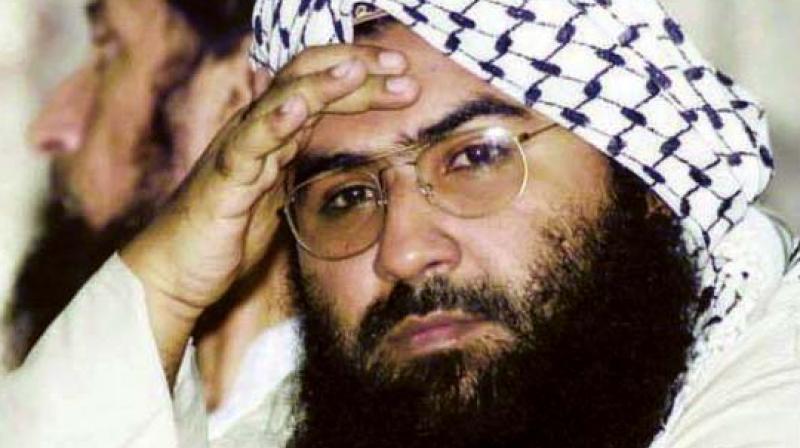Take action against Masood Azhar; US asks Pakistan
New Delhi has refused to engage in talks with Pakistan and has clarified that terror and talks cannot go together.

New York: The United States has asked Pakistan to take action against Jaish-e-Mohammed (JeM) chief Masood Azhar and other terrorists, who have been able to "exploit" their presence in Pakistan.
".... I think what we would like to see are the conditions whereby India and Pakistan can have a constructive conversation that leads to an improvement of relations between the two nuclear powers. And obviously, that is going to hinge off of the - off of counterterrorism, off of Pakistan's seriousness of effort in ensuring that groups don't take advantage and engage in cross-border infiltration, that there are serious steps to implement the Financial Action Task Force action plan that Pakistan has committed to, and which includes the prosecution of UN-designated terrorists," said Alice Wells, US Acting Assistant Secretary for South and Central Asia on Thursday.
"So whether it's Hafiz Saeed who currently is in custody and under prosecution, but also leaders of Jaish-e-Mohammed, like Masood Azhar, who long have been able to exploit their presence on Pakistani soil," she added.
Wells made these remarks during a press briefing in New York where 74 session of United Nations General Assembly is underway.
The JeM is responsible for carrying out many attacks in India. Its terrorists attacked the Parliament building and Jammu and Kashmir State Legislative Assembly complex in 2001, killing nine and eight people respectively. Pathankot terror attack in 2016, Pulmawa attack in February this year was also carried by the JeM.
Since the day of his designation by the United Nations as a "global terrorist" in May, Pakistan is reportedly keeping the chief of Jaish-e-Mohammed underground, preventing him from giving speeches in mosques or releasing audiotapes.
Early this month, the Indian government had also listed Azhar under the new anti-terror law Unlawful Activities (Prevention) Amendment Act, 1967.
Tensions between India and Pakistan are high since Pulwama attack in India. On February 14, Pakistan-sponsored Jaish-e-Mohammed terror rammed his explosives-laden vehicle into a convoy in Kashmir's Pulwama, killing over 40 CRPF personnel.
The tensions further worsen when India's abrogate the special status of Jammu and Kashmir. Following India's action, Islamabad ramped up its rhetorics against New Delhi and downgraded its bilateral ties. It also raised the issue before the international community claiming that India action will have repercussion in the whole world.
However, India has maintained that revocation of Article 370 is an internal matter and was taken to safeguard the country from Pakistan sponsored terror.
Pakistan has approached various countries to seek its support over the Kashmir issue. However, the countries have told it to hold talks directly with India as Kashmir is a bilateral issue.
New Delhi has refused to engage in talks with Pakistan and has clarified that terror and talks cannot go together. It has asked Pakistan to stop harbouring terrorism and then only talks would be initiated.
Wells said that Washington is hopeful to see "rapid action" in the lifting of restriction which was imposed by India action of August 5.
"...And I think we are interested in knowing the next steps in engagement and encouraging that political dialogue to begin, in which we'll also in the next - we hope to see rapid action in the lifting of the restrictions and in the release of those who have been detained," she said.
Early this month, India had removed the restrictions of 92.5 per cent of the geographical area of Jammu and Kashmir.
"92.5 per cent geographical area of Jammu and Kashmir is free of restrictions. We are determined to protect the life of citizens of Kashmir from Pakistan terrorists even if we have to impose restrictions for it. Terror is the only instrument that Pakistan has to create an adverse situation in the Valley", National Security Advisor (NSA) Ajit Doval had said.
Catch the latest news, live coverage and in-depth analyses from India and World. Follow us on Facebook and Twitter.

